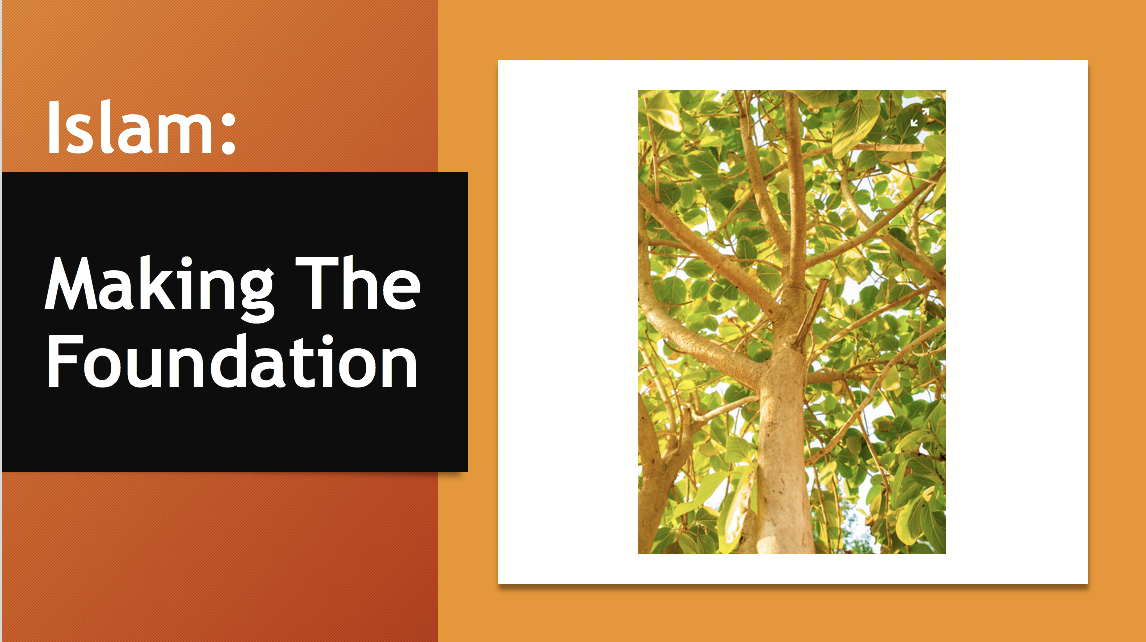
The Five Pillars of Islam
Allah created human beings to worship Him. The goal of worship in Islam is to achieve God’s nearness, establish a spiritual connection with the Sublime, and seek His pleasure. The basic Islamic practices are embedded in the five pillars of Islam. The pillars are foundational to the religion of Islam. https://qpeace.net/?p=1734
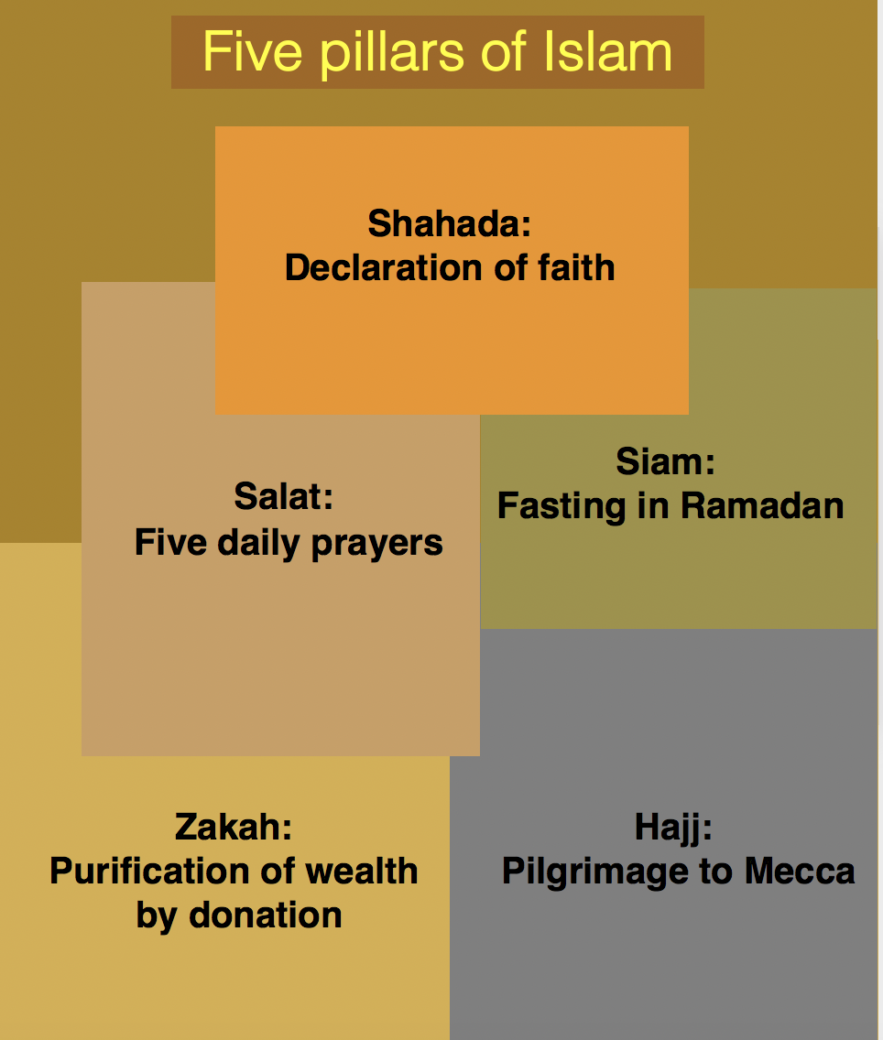
The Quran 51:56, “…I have not created the Jinn and humankind except that they worship Me…”
Shahada
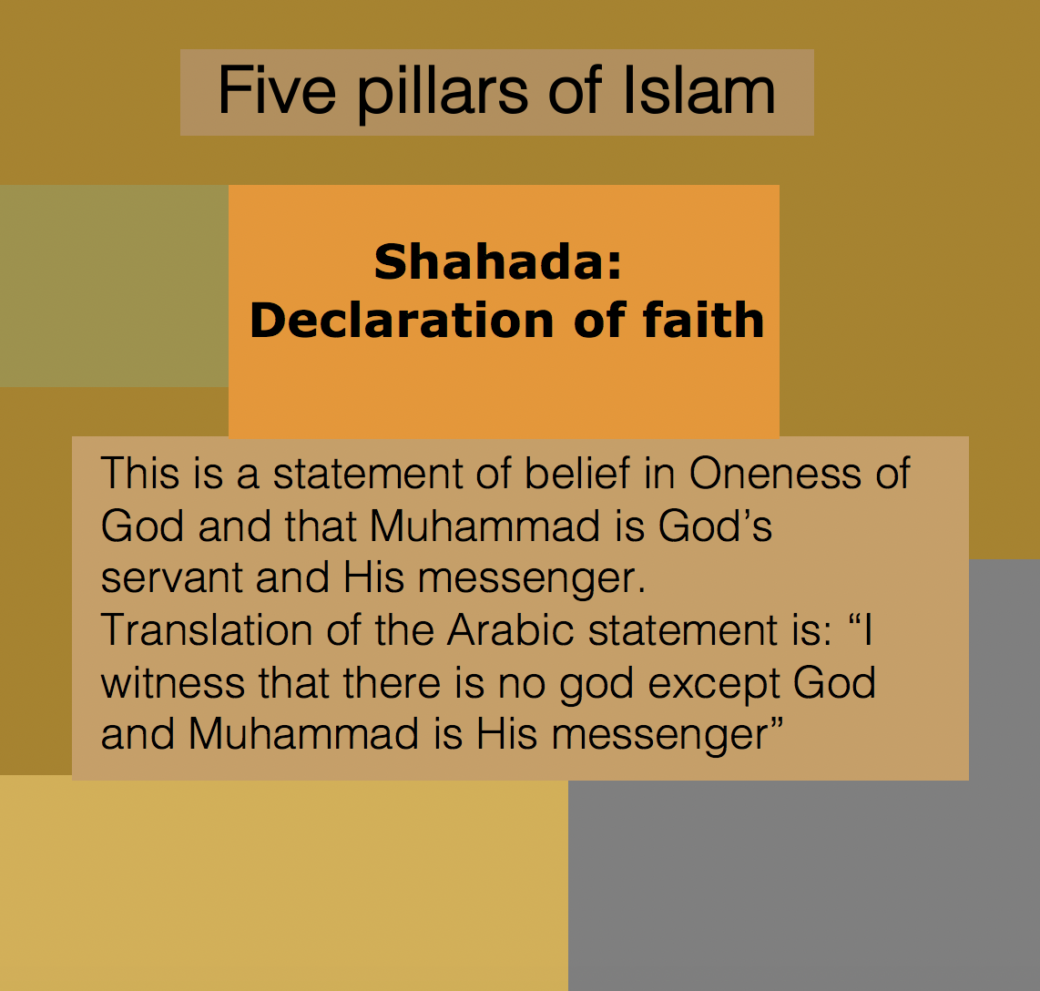
“There is no God except Allah, and Muhammad is His messenger.” This is the statement of belief in Islam. The statement summarizes the meaning of a Muslim: 1. One who personally accepts and believes in One God without any partner. 2. believes that Muhammad (peace be with him) is Allah’s (God in Arabic) messenger. 3. Commits to following Allah’s guidance in life. Without an unforced and sincere belief in these, one can not claim to be a Muslim.
Transliteration in Arabic: “La Ilaha illallahu Muhammadur Rasulullah.” The following is the calligraphy of Shahada in Arabic. The Shahadah is the first of the Five Pillars of Islam.

Salat
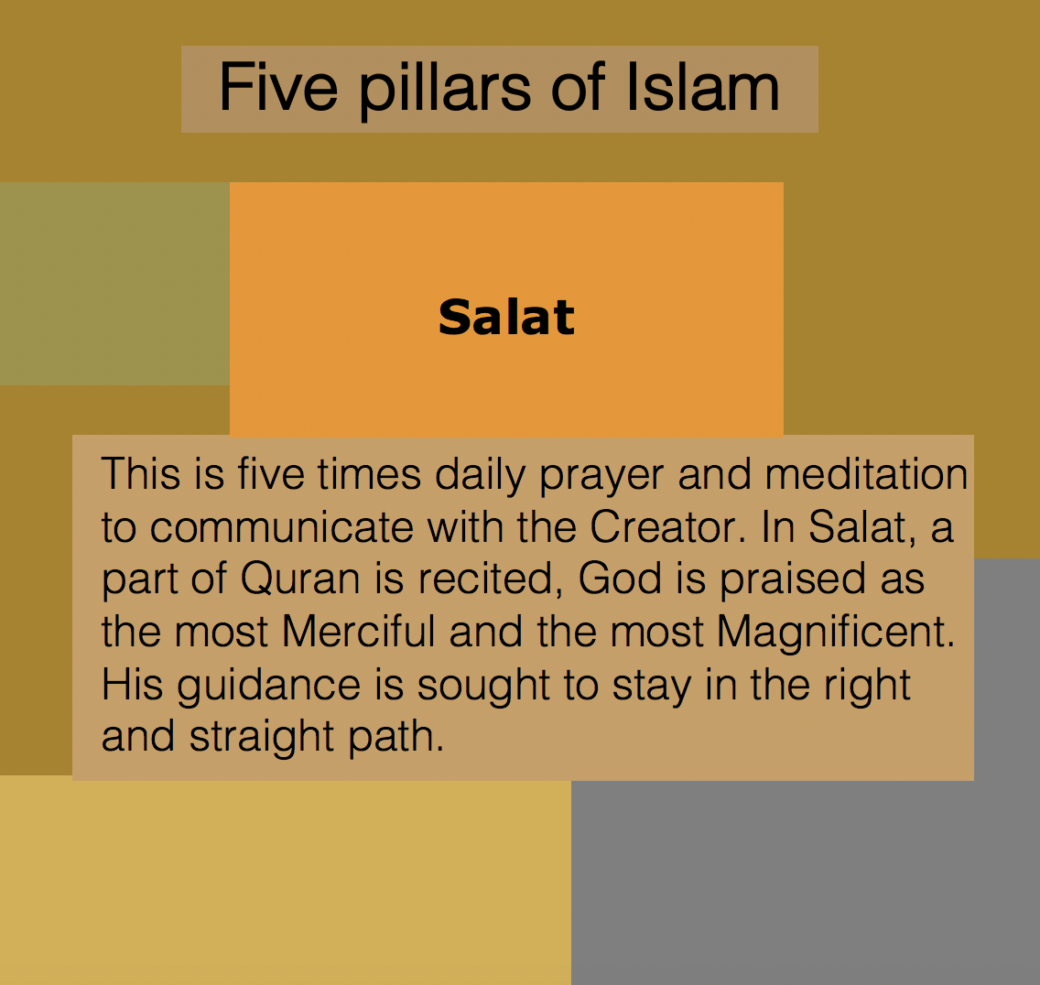
Salat is the second Pillar of Islam. These are unique sets of meditations, with a series of set movements that go with the words, reciting Quranic verses, with the focus of mind, concentrating solely on worshiping God. There are five salat sessions in the course of the day, setting the day’s rhythm for a Muslim. Before each prayer set, there are cleansing of hands, arms, face, and feet, ensuring physical cleanliness synchronizes with a spiritual purity during the prayer. A Muslim feels Allah’s unmediated nearness while in Salat. It must be remembered that there is no intermediary between the Creator and humankind in Islam
Please follow the link to learn how to perform Salat: https://muslimhands.org.uk/latest/2020/07/how-to-perform-salah
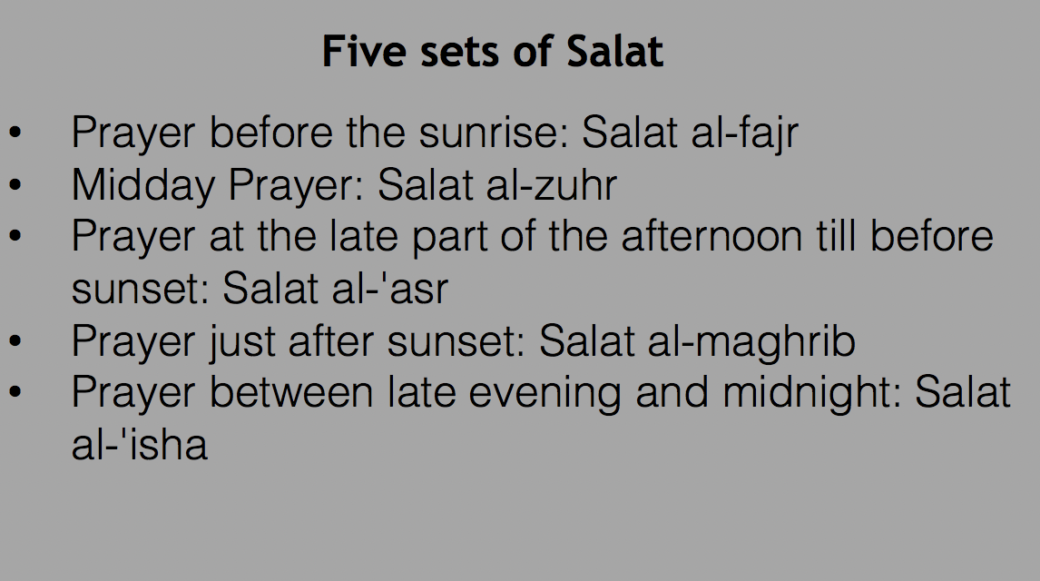
Facing the Qaaba during the prayers
Muslims take their five daily prayers very seriously, whether they pray individually or in a congregation. The prayers are done facing the direction of the Qaaba, Makkah, Saudi Arabia. A fixed direction for the prayers gives Muslims extra clarity in the physical process of worship. It must be remembered that Muslims do not worship the Qaba or the stone of the Qaba. Facing the Qaba gives all Muslims worshiping the Creator in a form of physical unison and similarity, enhancing the bondage of feeling of brotherhood.
Practicing self-control in Ramadan
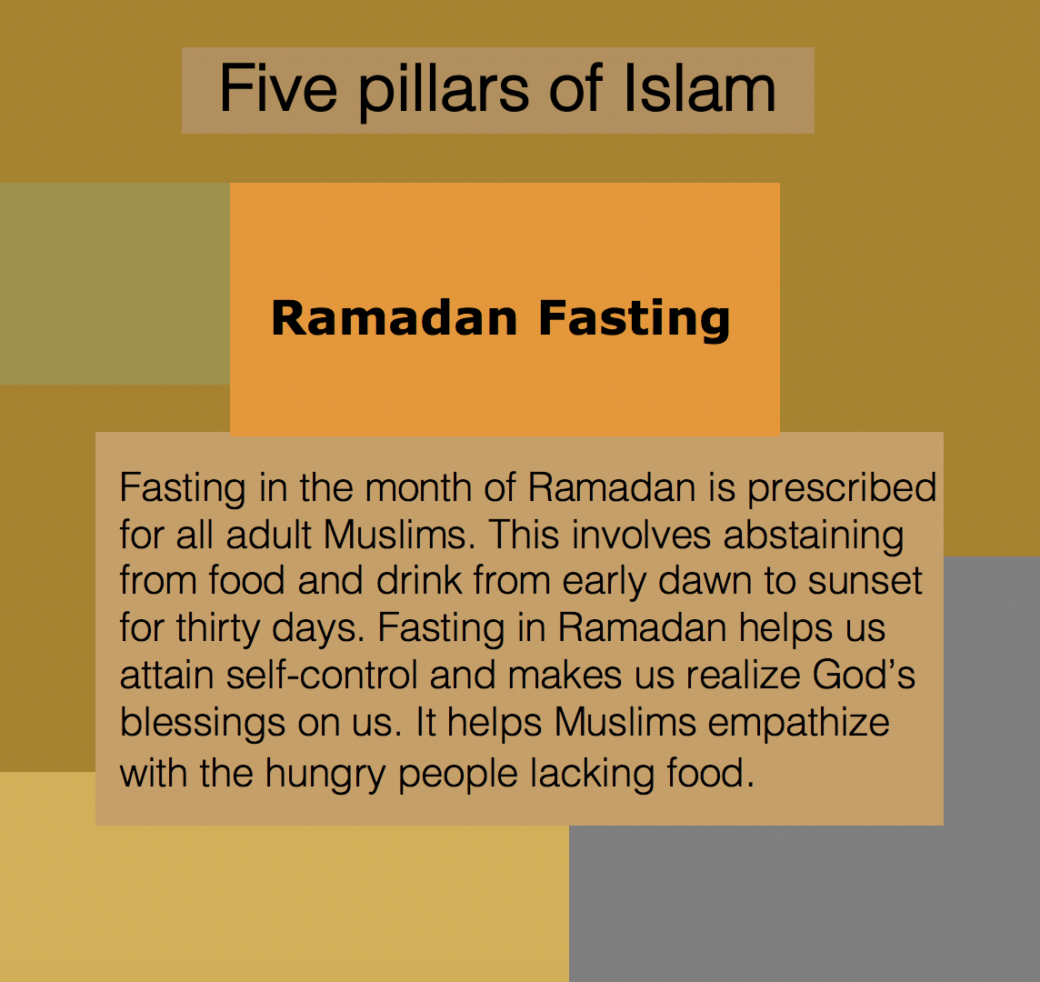
Muslims believe that God began the revelation of the Quran during the month of Ramadan, making this a month of high spiritual significance. Muslims fast every day of this month from the very early dawn to sunset. They spend this month in the spiritual training of self-restraint from bodily desires and impulses. It is the month of soul-searching, a month of repentance for sin, thanking the Creator, empathize with others, an increase in charity, and generosity. It is a time of Muslim’s physical and spiritual composure.
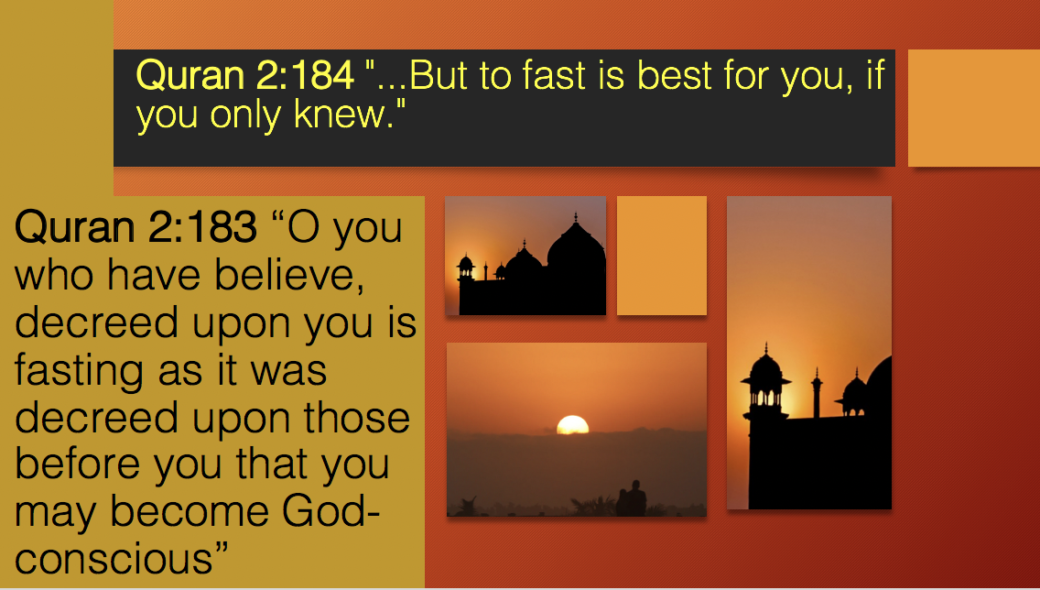
As seen in the Quran, fasting has been prescribed to help our “taqwa,” which is being in a state of God-consciousness. The recent scientific discovery suggests that fasting is good not only to purify our souls but also to purify our body cells.
How does fasting cleanse your cells? Please read this for more on this issue: https://qpeace.net/?p=7239
Zakah, the Islamic charity
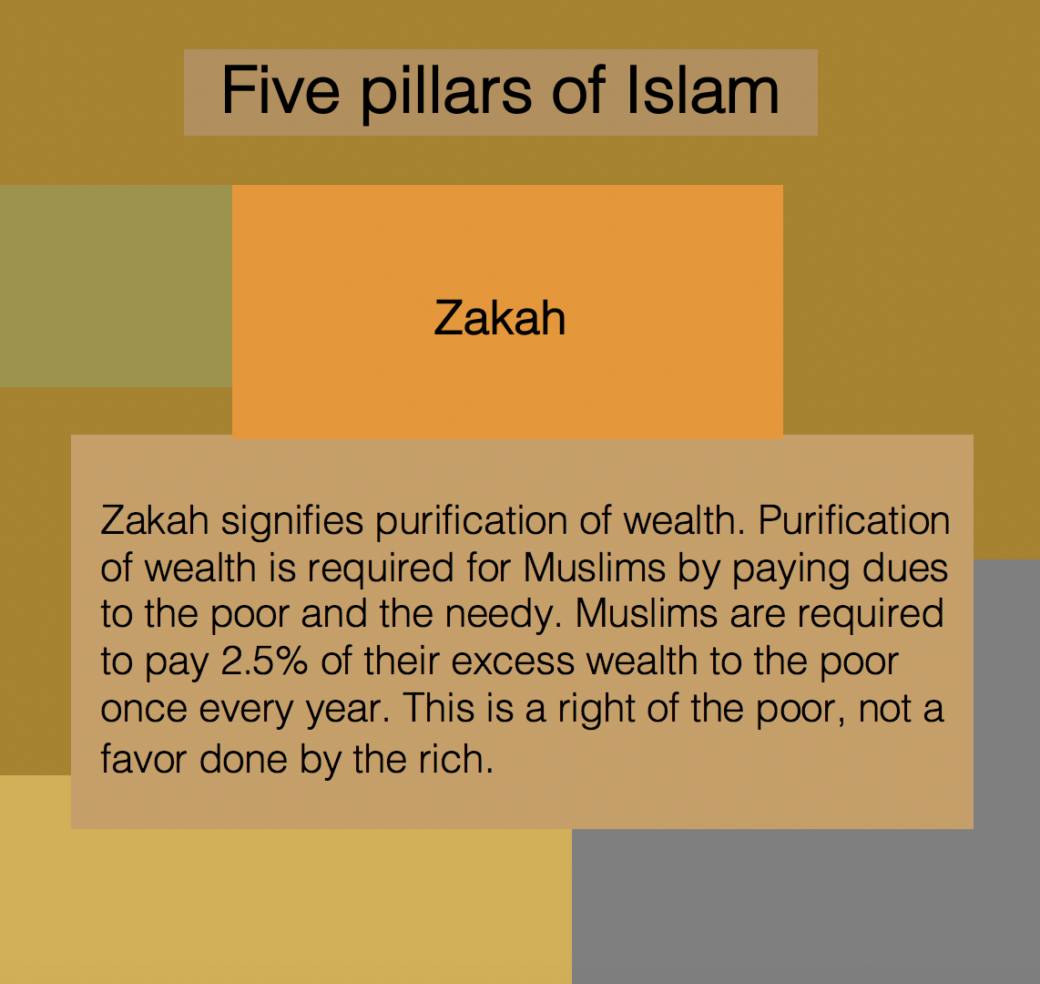
Zakah, meaning purification, is the name for Islamic mandatory form of donations to charitable causes. This is a right of the poor of society, which the wealthy have to pay. In Islam, personal charity and benevolence are highly esteemed. Islam has defined criteria for Muslims who are mandated to pay this tax to relieve the poor. Zakah comprises 2.5% of the value of the possession, above and beyond the needs of living, calculated, and given once a year. By sharing the amount to the poor, Muslims purify their wealth. This is part of Muslim worship.
For more information on Zakah, please follow this link: https://www.islamic-relief.org/zakat/zakat-faq/
You may like to know: “Each year, between $200 billion and $1 trillion are spent in mandatory alms and voluntary charity across the Muslim world, according to Islamic financial analysts.” Source: https://www.investopedia.com/terms/z/zakat.asp
Haj, the annual pilgrimage to Makka
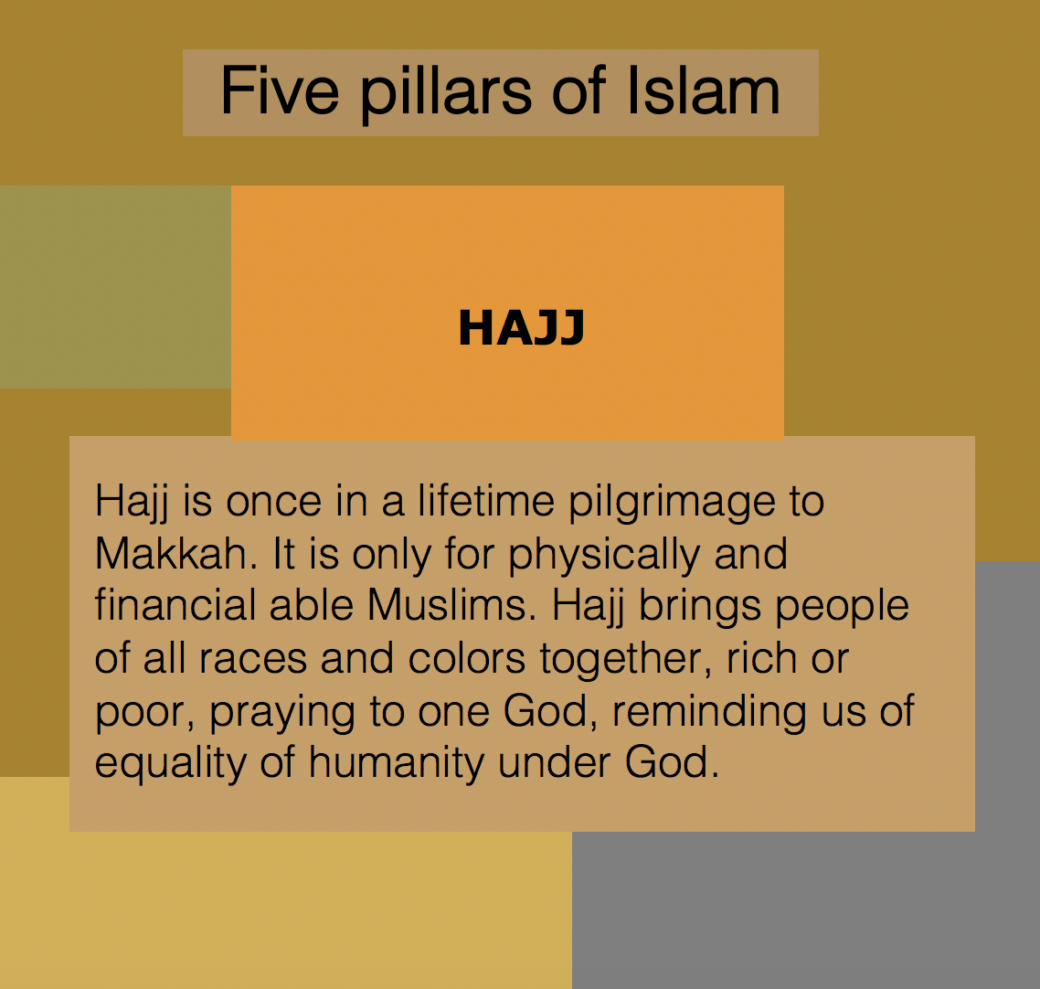
The hajj is the fifth pillar of Islam and is the most rigorous ritual act for a Muslim. The full event takes about five days. From all over the world, millions of Muslims gather in the holy city of Makkah, Saudi Arabia, once every year to perform the once-in-a-lifetime obligation for physically fit and financially able Muslims.
Hajj is a symbolic practice that reflects the ideal of human unity and equality in God’s eyes. This Islamic ritual breaks the boundaries between humans in terms of their social status, skin color, possession of wealth, intellectual or physical ability.
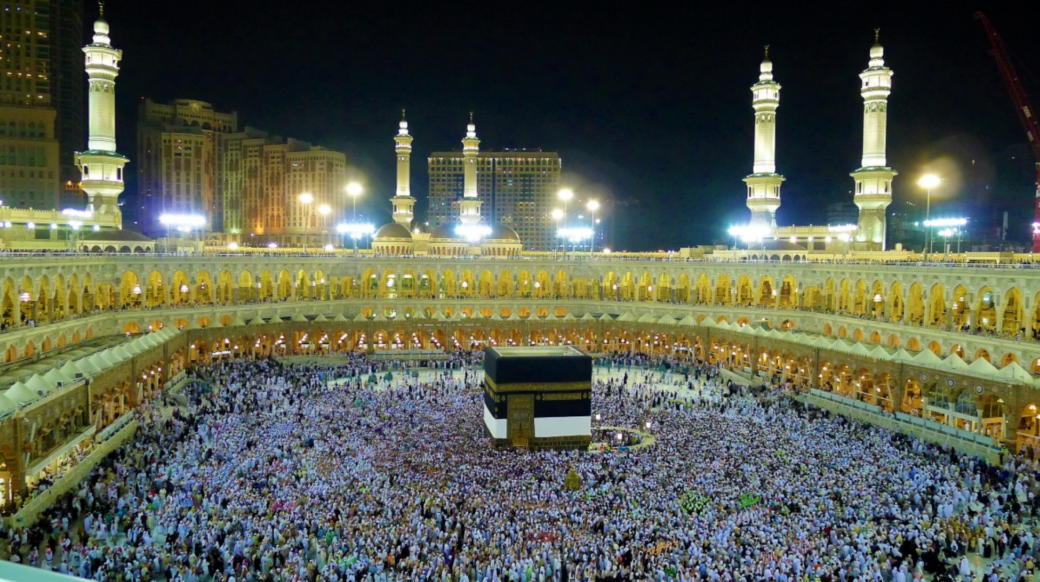
More information on Hajj: https://theconversation.com/the-muslim-hajj-a-spiritual-pilgrimage
Quran 41:51
“… When We bestow Our blessings upon man, he tends to turn aside and keep aloof [from remembering God]; but as soon as evil fortune touches him, he is full of wordy prayers!... ” .http://corpus.quran.com/translation.jsp?chapter=41&verse=51

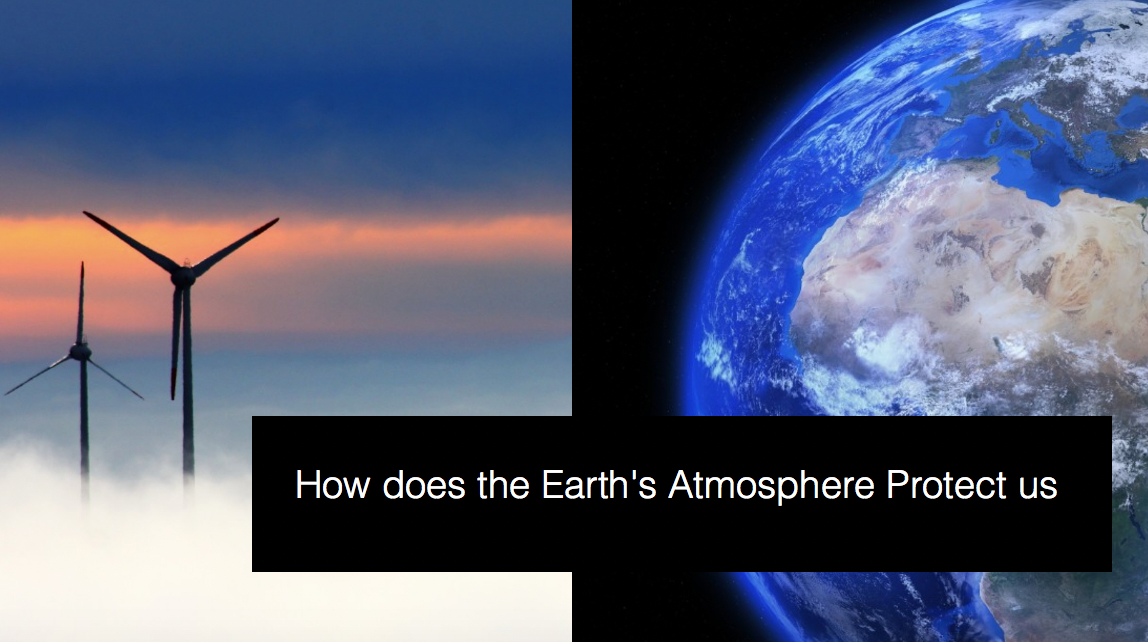
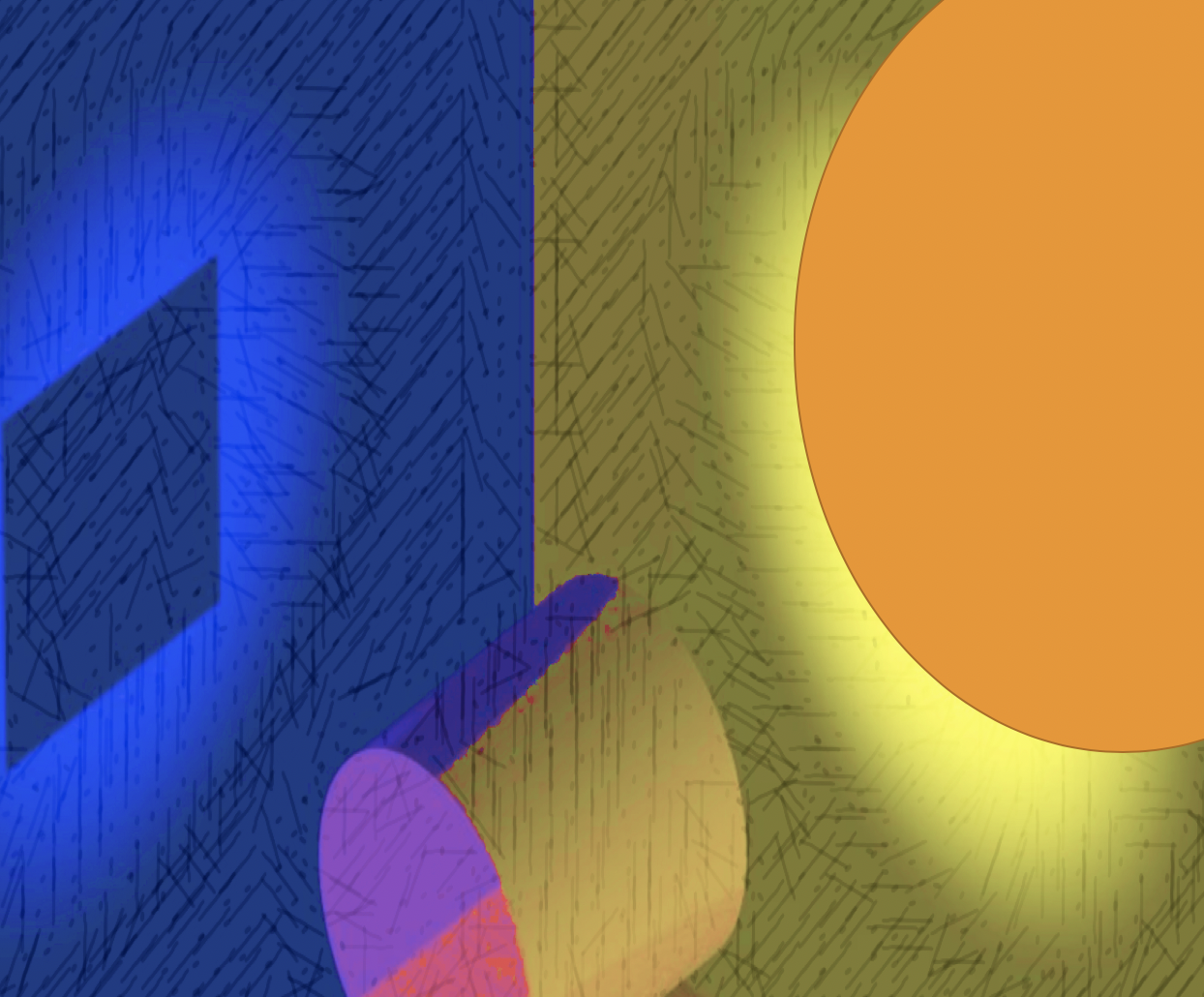
1 Trackback / Pingback